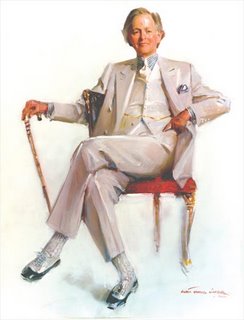Teaching?
"When we say “teacher,” what we are really saying is “the person in the classroom to whom students look for knowledge” or something like that. In the traditional classroom that almost all of us grew up in, the teacher was the focal point, the decision maker, the director, the assessor. Teachers, well, teach, or try to. We hire teachers based on how well they know their subject matter and how well we think they can deliver it to students. Teaching, the way most of us see it, is all about imparting knowledge in a planned, controlled way.
In a world where knowledge is scarce (and I know I’m using that phrase an awful lot these days), I can see why we needed teachers to be, well, teachers. But here’s what I’m wondering: in a world where knowledge is abundant, is that still the case? In a world where, if we have access, we can find what we need to know, doesn’t a teacher’s role fundamentally change? Isn’t it more important that the adults we put into the rooms with our kids be learners first? Real, continual learners? Real models for the practice of learning? People who make learning transparent and really become a part of the community?"
But for a writing instructor, how can knowledge be scarce? In fact, don't we create knowledge as we write?





